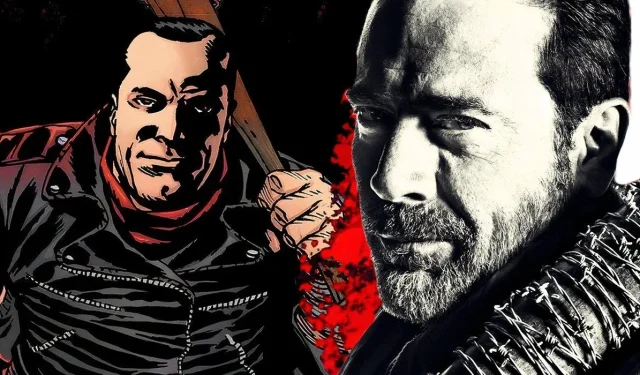Robert Kirkman, the mastermind behind The Walking Dead, recently shared insights about how the television adaptation of his acclaimed comic series influenced its ongoing Deluxe retrospective reprint. One significant moment in this narrative is the introduction of the formidable arch-villain Negan in the landmark hundredth issue. Kirkman expressed his initial skepticism regarding the character’s potential for adaptation to the small screen.
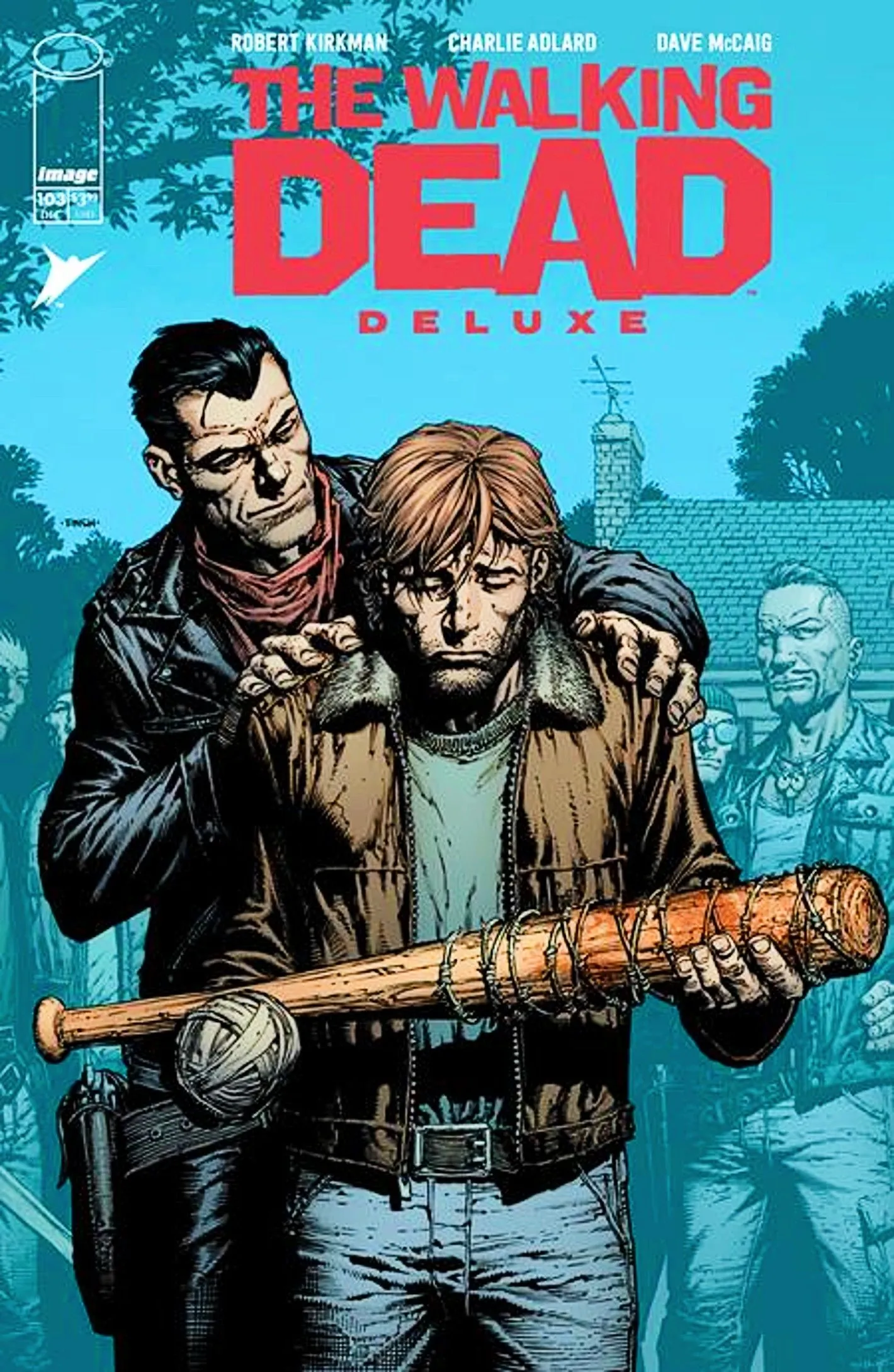
The hundredth issue was not just pivotal due to Negan’s debut; it also coincided with a critical juncture where the comic’s publication timeline overlapped with the early seasons of the television show. Kirkman’s reflections provide fans with valuable context on how the adaptation shaped the source material, particularly concerning the complex character of Negan.
Kirkman’s Initial Doubts About Negan’s Adaptation
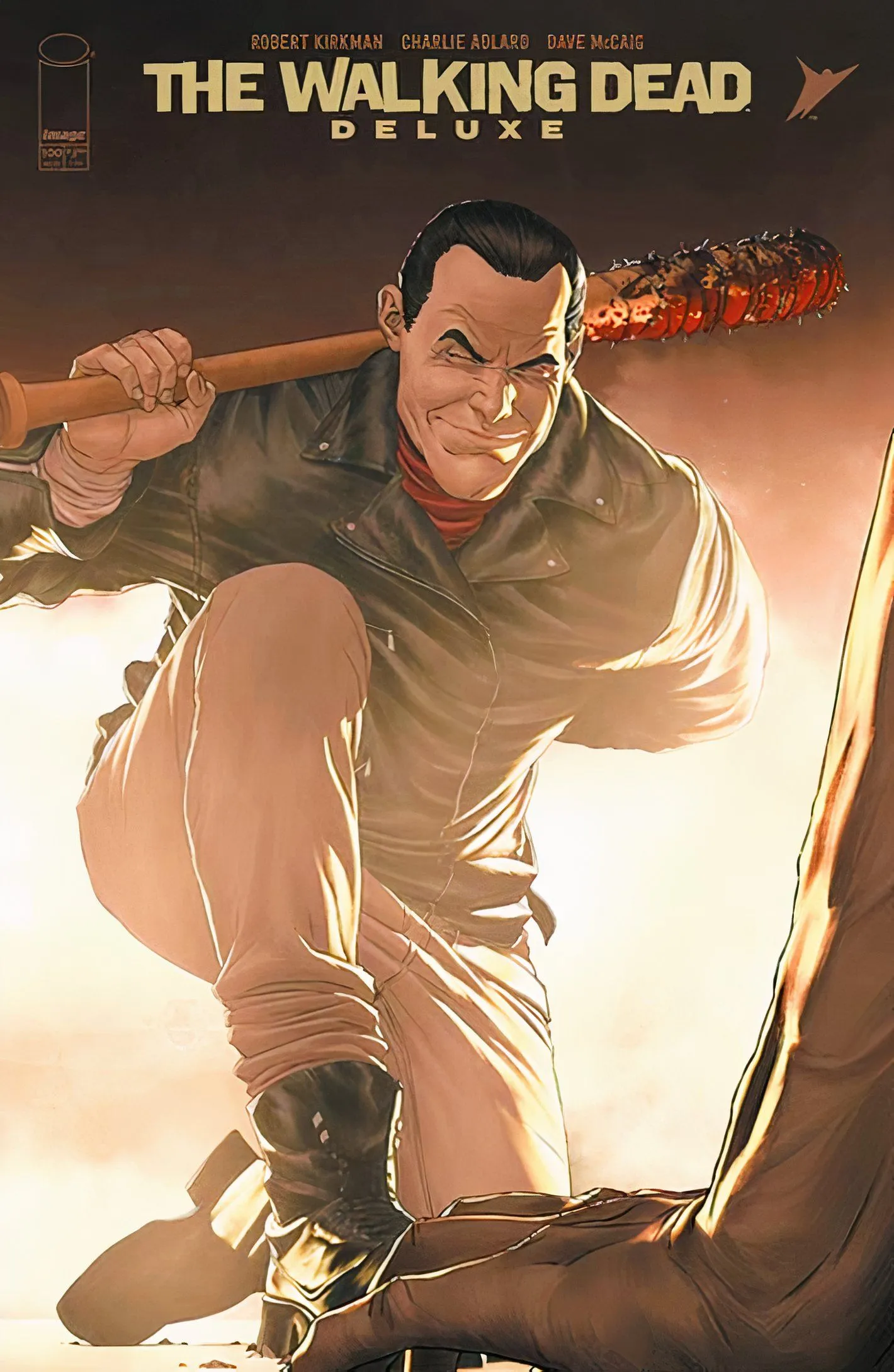
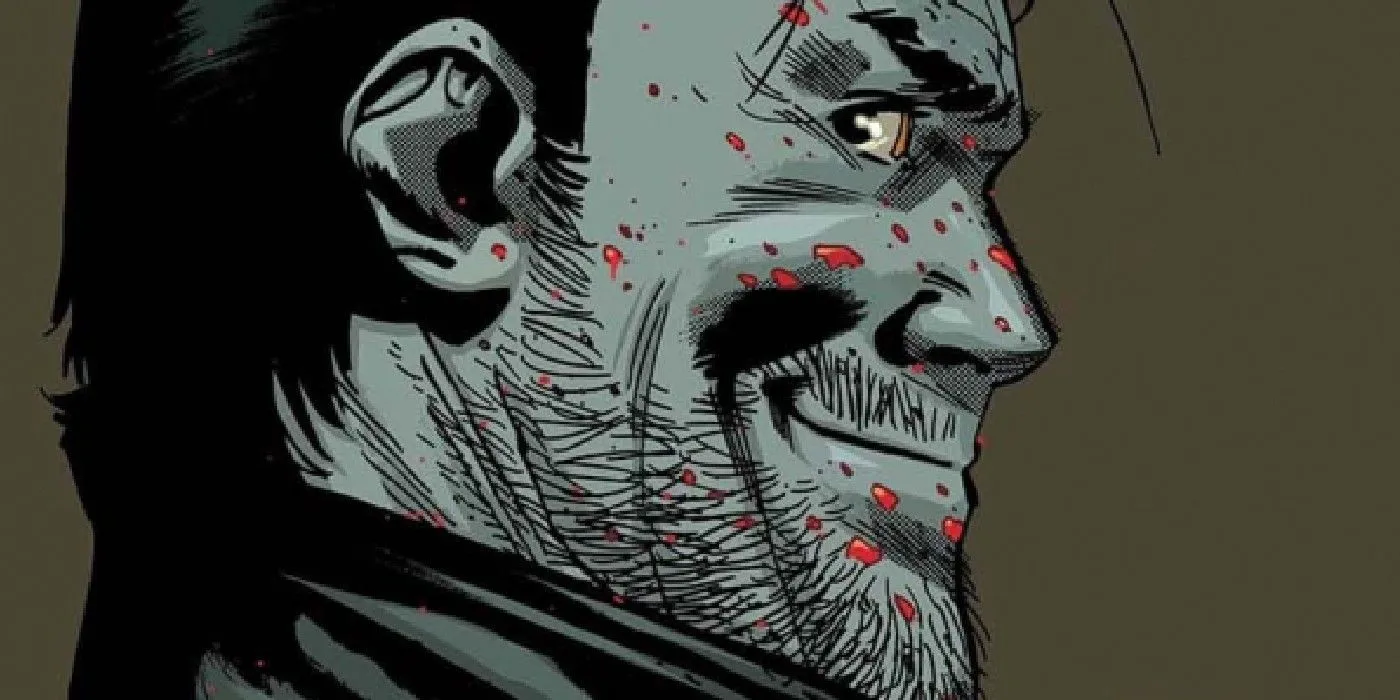
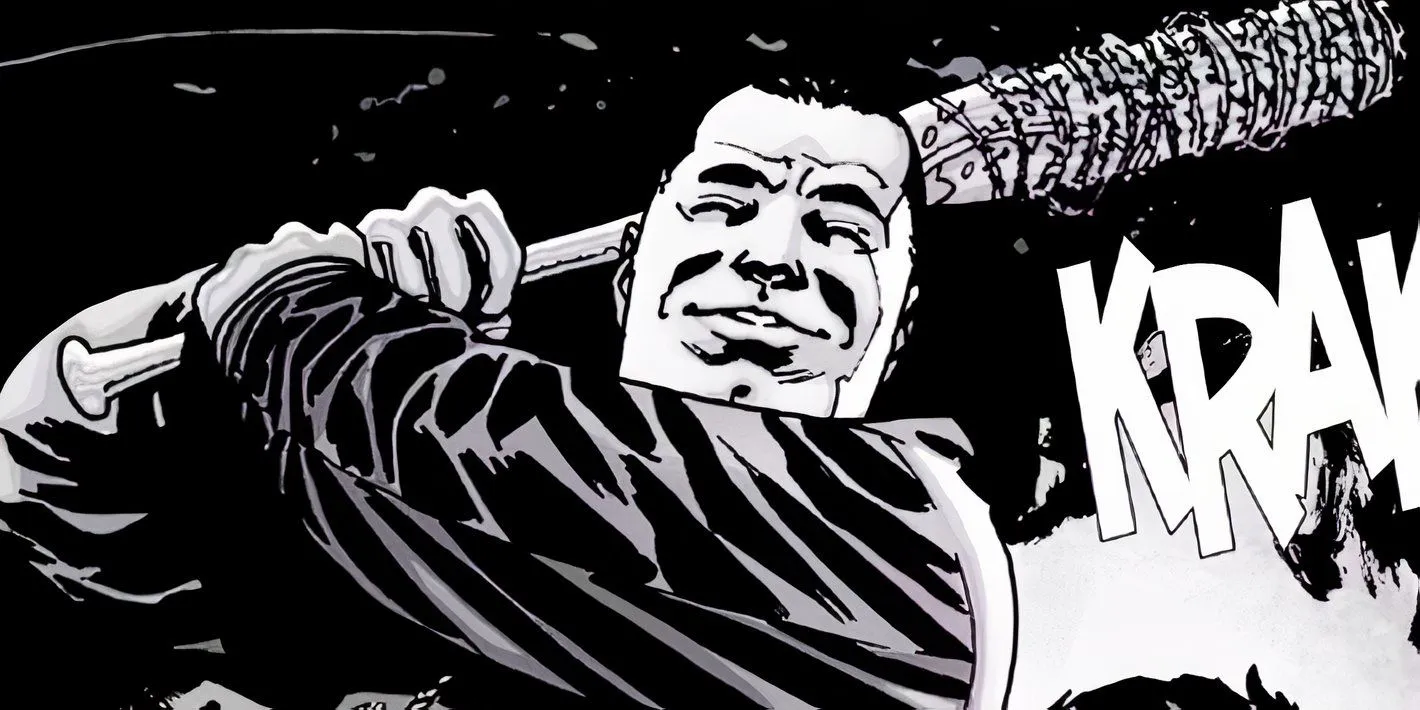
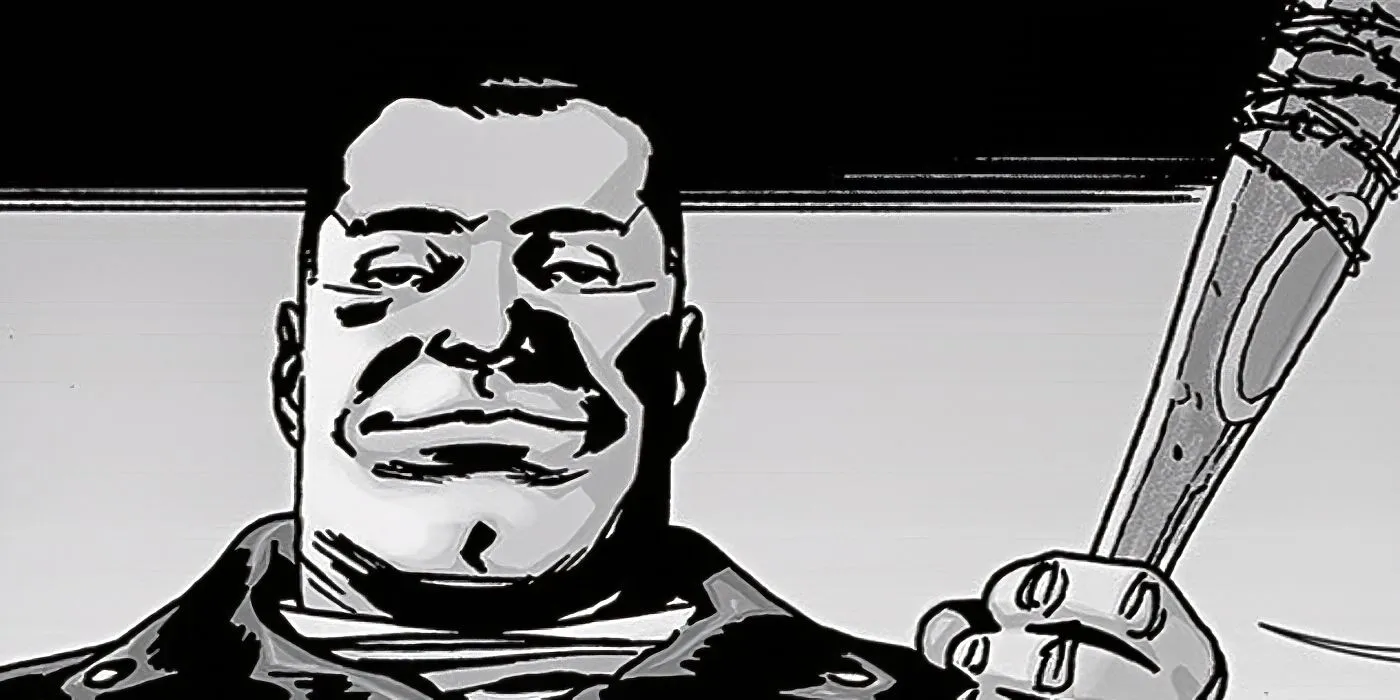
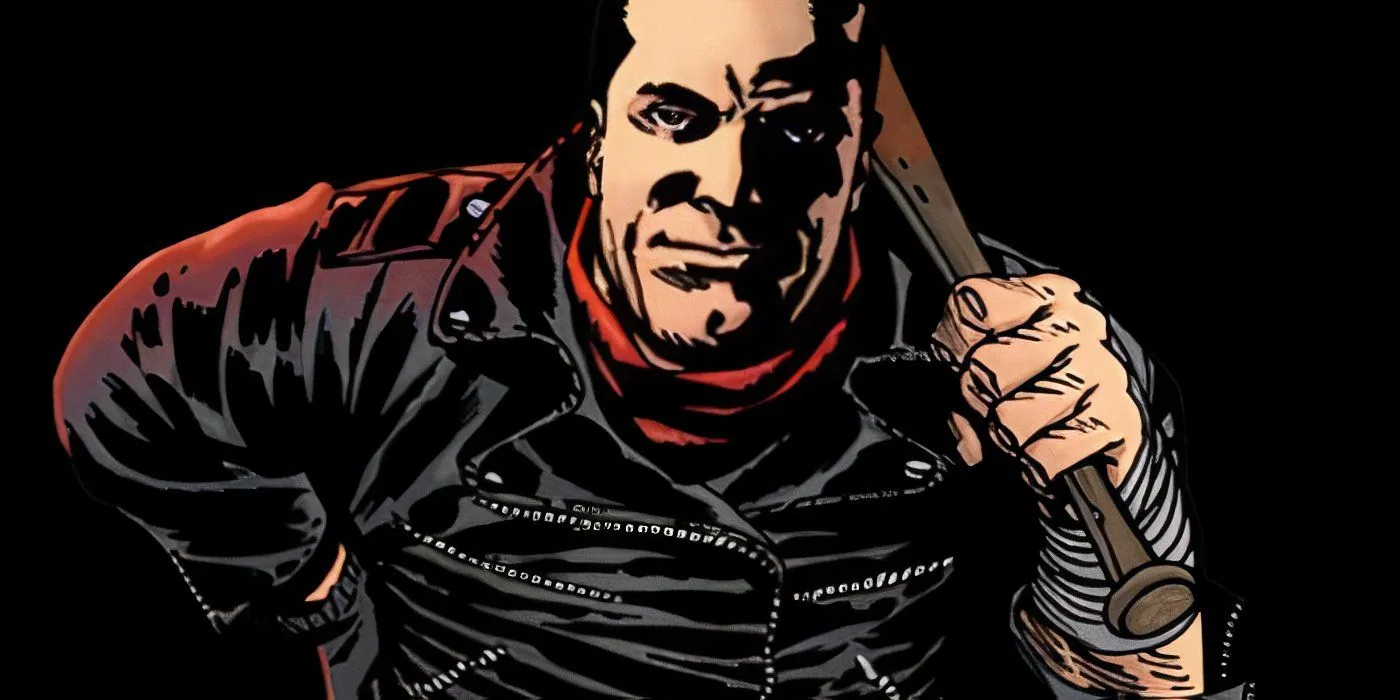
When Negan and his ruthless group, the Saviors, were finally portrayed in the television adaptation, some aspects of the character were toned down, particularly his use of vulgar language, though his penchant for violence remained intact. Remarkably, the portrayal by Jeffrey Dean Morgan captured the essence of Negan, mirroring the character’s comic book journey despite the reservations Kirkman had initially harbored. Kirkman’s original intention was to craft a character too extreme for television, illustrating his commitment to pushing creative boundaries.
As he stated in The Walking Dead Deluxe #103:
Post-issue 72, the last issue to ship out before the TV show came out, I was fighting the “Are you writing this so it CAN appear in the TV show?”feeling constantly. So, the ideas got bigger and crazier. Which led to all kinds of cool stuff. I have to admit, in the back of my mind, I was probably thinking, “They’ll never be able to put this foul-mouthed lunatic in the show.”That has to be some element of Negan coming into being. Little did I know, eventually the amazing Jeffery Dean Morgan would be bringing him to life in a way that would enhance the character to new, loftier heights.
This perspective indicates that Kirkman’s conscious decision to disregard the TV adaptation’s implications led him to intensify the comic series, introducing grittier themes, shocking character deaths, and heightened drama during a crucial storytelling phase that continued from Walking Dead #72 through the hundredth issue.
Kirkman’s Commitment to Comic Integrity
The Walking Dead Deluxe #103 – Main Cover By David Finch & Dave McCaig; Variant Cover By Charlie Adlard & McCaig
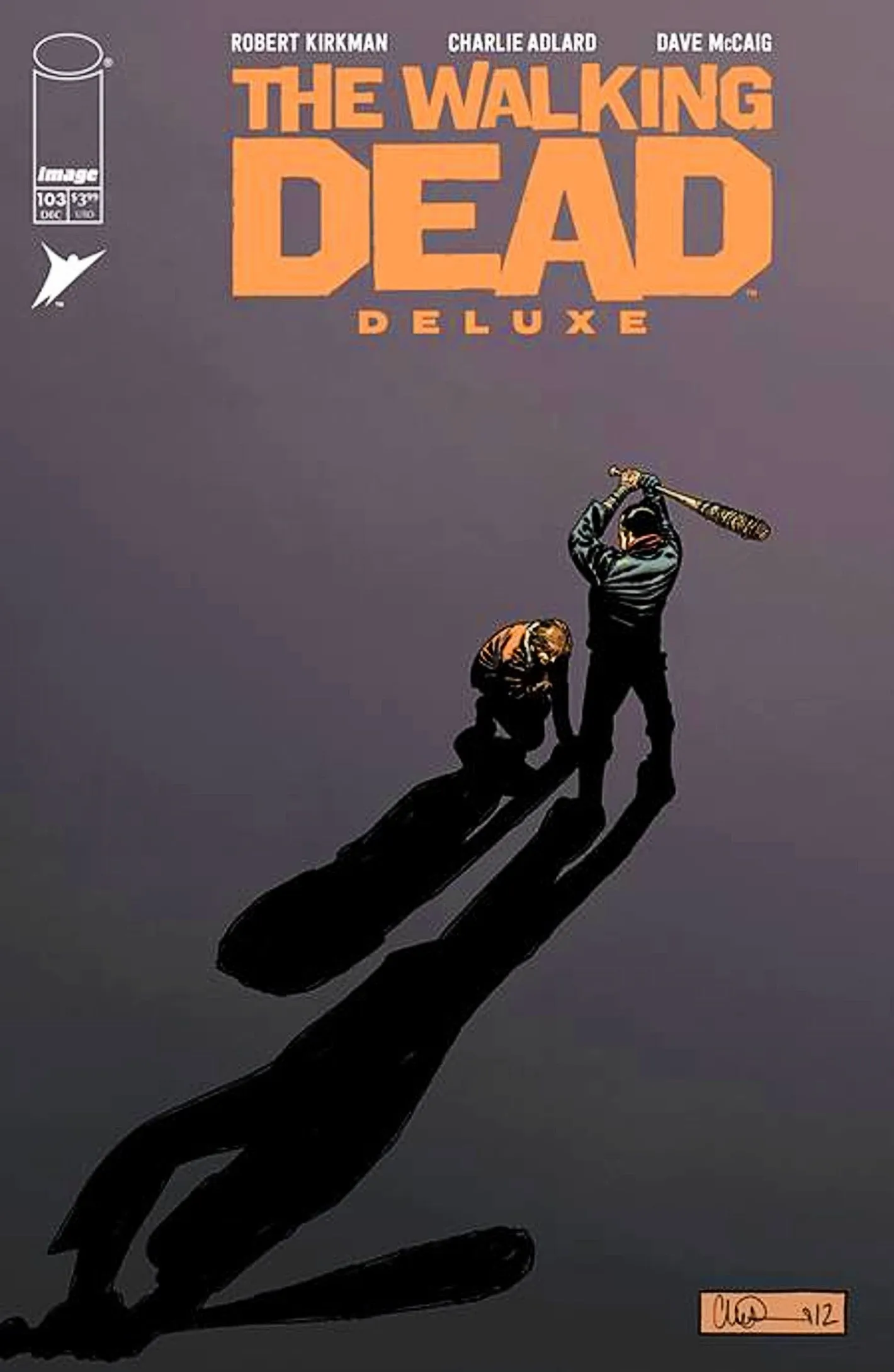
Since its inception in 2003, The Walking Dead comic faced minimal restrictions, thriving in a time when the genre had not yet experienced its resurgence. Kirkman enjoyed creative freedom without constraints from publishers like Image Comics. However, by the time the television series grew in popularity, Kirkman found himself at a crossroads, weighing franchise potential against the comic’s narrative integrity.
Despite the pressures of commercial success, Kirkman’s decision to maintain the comic’s distinctive voice, rather than simplify it for the adaptation, reinforced his dedication to storytelling. This choice enhanced the comic’s emotional and thematic weight, elevating it beyond mere franchise fodder.
Ultimately, this creative approach exemplifies Kirkman’s willingness to embrace risks, positioning The Walking Dead as a groundbreaking work within modern comics. Rather than succumbing to franchise pressures, Kirkman leveraged the adaptation as an opportunity to deepen the comic’s originality, making it a significant cultural artifact. This commitment to artistic integrity contributes to Kirkman’s esteemed status as one of the foremost creators in the early 21st century.
The Walking Dead Deluxe #103 is now available from Image Comics.
